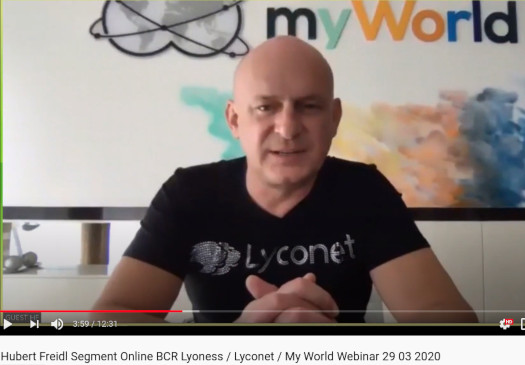
The news broke on March 28th, via a webinar featuring CEO Hubert Friedl.
The original webinar is in German. The folks over at BE KonfliktManagement have however kindly provided us a translation rundown.
Lyoness’ real-estate deal was pitched as “the soundest deal the world had ever seen”.
Anyone could join in the earnings from this multi-success company – referring to myWorld – and set up a real-estate empire without investing any of their own money (quote-unquote).
Supposedly Friedl, who looked fabulous in a branded slim rhinestone-studded t-shirt, is developing property in Hanover, Germany.
The project was supposedly managed by the St. Johann-based company myWorld Real Estate GmbH, a wholly owned subsidiary of London-based myWorld Real Estate Limited.
The project is scheduled for completing in Q4 2021, after which Lyoness will rent out office suites for a combined €220,000 EUR a month.
Supposedly “up to 25%” of profits will be shared with qualified Lyoness affiliates.
Affiliates qualify for a share in passive returns by purchasing M-vouchers.
You advertise the advantages of real estate ownership and “passive income”, but sell shopping vouchers!
Accounting units, shopping units, shopping vouchers, M-vouchers, it’s all the same.
If Lyoness’ property project ever materializes, how much affiliates will have to invest and convince others to invest has yet to be determined.
The primary purpose of this webinar was to advertise “shares in a real-estate project,” touting it as a sensation.
There were no details on the figures or how these “on-top shares” would be distributed to the individual marketers.
In effect, each marketer would have spent money in the form of M-vouchers for the heavily advertised real estate property, once again still buying nothing but vouchers.
It’s certainly interesting to observe, as time goes on, how far Lyoness has strayed from it’s original cashback marketing ruse.
